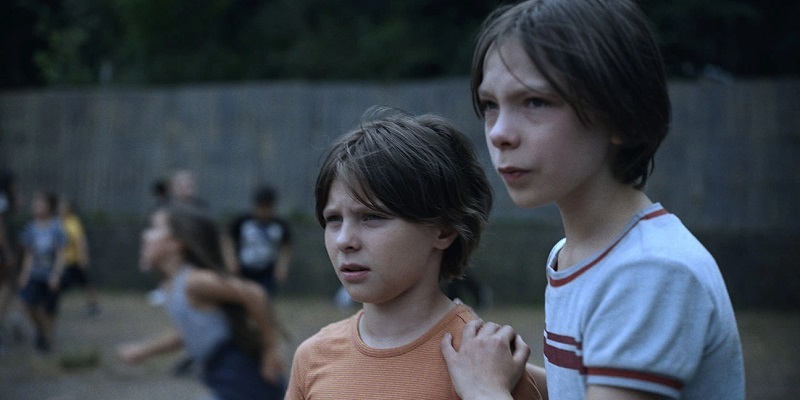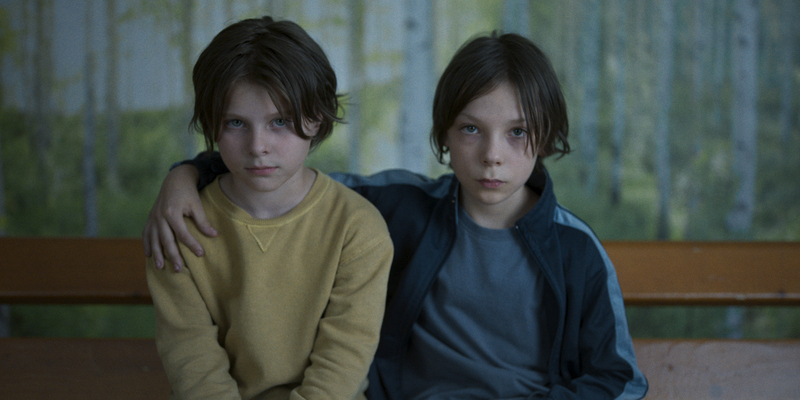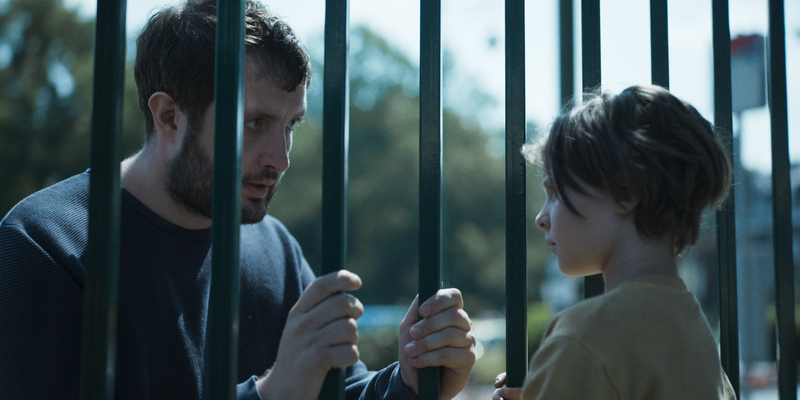
A seven-year-old girl enters primary school and discovers her older
brother is the subject of intense bullying.
Review by
Eric Hillis
Directed by: Laura Wandel
Starring: Maya Vanderbeque, Günter Duret, Karim Leklou, Laura Verlinden

He's rarely cited as an influence, but the once unique filmmaking style
of the late Alan Clarke has become the de facto technique for European
filmmakers dealing with traumatic subject matter. For those unfamiliar
with Clarke's work, think of a video game in which the camera is always
centred on and hovering around the protagonist. Recent examples of this
include László Nemes's
Son of Saul, Myroslav Slaboshpytskyi's
The Tribe
and Audrey Diwan's
Happening.
The latest European filmmaker to evoke Clarke, either intentionally or
through osmosis, is Belgium's Laura Wandel. Her feature debut
Playground not only adopts Clarke's signature visual style
but also follows his narrative formula of not so much telling a
traditional story but rather spending a period of time in the company of
a central character. It may be set in a primary school, but Wandel's
debut is as harrowing as Clarke's infamous borstal drama
Scum.

The central figure here is seven-year-old Nora (Maya Vanderbeque), whom we meet as she tearfully bids farewell to her father (Karim Leklou) on her first morning of school. Nora has an older brother, Abel (Günter Duret), who is a few years ahead of her, and it initially seems as though
Abel is set to show her the ropes and look out for his kid sister. Once
the lunch bell rings however, Abel doesn't want to be seen around his
sister, and it quickly becomes apparent why. Abel has been selected as
the target of the school's bullies, who torment him with physical
torture like dunking his head in a toilet and trapping him inside a
bin.
Initially, Nora tries to help her brother by alerting teachers and
telling her father of Abel's predicament. But this just makes things
worse for Abel, who in turn grows even more distant from his sister.
Making friends of her own, Nora realises she has a degree of stability
absent from her brother's school life, and she too begins to turn on
Abel in order to fit in. This cycle continues as Abel himself finds
another boy to take his frustrations out on in a cruel manner.

Playground is as effective an advert for home-schooling
as you could imagine. It has the structure of a prison drama, with Nora
representing the new fish who quickly discovers she needs to toughen up
if she has any hope of survival. The school years are supposed to be the
best of your life, but for many kids it's akin to a prison sentence, and
even most murderers don’t have to stick it out for 12 years.
Keeping her camera trained on Nora, and at her level in the manner of
E.T., Wandel reinforces her young protagonist's vulnerability and the
apparent lack of help from the adult world. Teachers are portrayed as
sympathetic but ineffectual at best, indifferent at worst. Bodies, some
twice the size of Nora, run around and crash into her on the playground,
while she contends with sniggering in the classroom due to her poor
learning skills.

Vanderbeque's performance is supernaturally good, a testament to
Wandel's skill as a director. How a filmmaker can evoke such a realistic
turn from such a young performer is beyond me, but Vanderbeque is so
convincing that we never once feel like we're watching a child actor
play a role. Vanderbeque's young face carries the stress and strain of
someone who has lived a lot longer than seven years. I guess school
makes you grow up quickly. It's the time when you realise that for all
your family and friends, when it comes down to it, you're on your own.
More so than reading, 'riting and 'rithmetic, school teaches you how to
keep your head down, how to hustle, how to avoid unwanted attention, how
you can't rise above others without trampling on them, and that
cruellest lesson of all, that you're either a victim or a bully.
The original French language title of Playground is 'Un
Monde', which translates to 'A World.' It's perhaps a more fitting
moniker for Wandel's film, as the classrooms, halls and playground here
act as a microcosm of greater society, a distilling of the adult world
down to its primal origins. Whenever adults commit some atrocity, people
like to talk about the innocence of children. The sad truth is that
we're rarely crueller than when we're children, that time when we're
both at our most tribal and most narcissistic. You just have to look at
the adult world to see many of us fail to progress from this
state.


